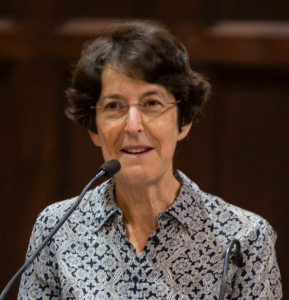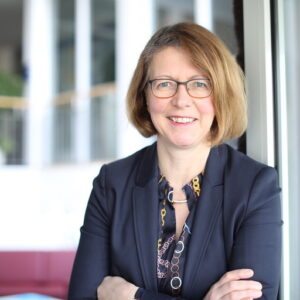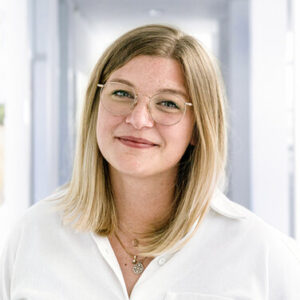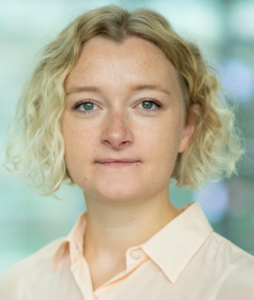Post-CHI Summer School on
Digital Technologies For Women’s Health And Wellbeing
This Summer School on Digital Technologies for Women’s Health* and Wellbeing invites participants to Oldenburg, Germany, for three days 2-4th May. The Summer School aims to open up a space of discussion on how HCI research intersects with women’s health, and how we approach intimate data, female bodies and identities. The summer school will include a mix of keynotes and panels on self-tracking technologies for womens’ health and wellbeing, participation and design for intimacy. Participants will be exposed to a mix of methods ranging from design thinking, over exploring and “hacking” existing technologies to lof-fi prototyping of innovations.
In several sessions, we brainstorm and discuss how we might innovate personal digital technologies to improve women’s health, tackle taboos and stigmatization and increase women’s agency in dealing with intimate data. In hands-on sessions, we will prototype innovative digital technologies around women’s health, explore novel ways of interacting with intimate data or “hack” existing troublesome examples.
Are you pursuing a PhD around women’s health, long-term health tracking, care technologies, women-centered design, or feminist HCI? Then apply to participate in the Summer School on Digital Technologies for Women’s Health and Wellbeing. In addition to the main programme, the Summer School will feature informal events, a dinner, and an excursion in lovely Oldenburg.
* We use “Women’s Health” following prior research in the HCI community focusing on health issues including but not limited to pregnancy, menstruation, menopause and breast cancer. We decided on the use of this term to enable junior scholars (the target group of this summer school) to more easily link back to these lines of previous research. Yet, we acknowledge that the gendered term “women’s health” in itself is already imperfect, as it runs the risk of assuming heteronormative and binary gender norms. We emphasize that this summer school welcomes all research perspectives relevant to (gendered) marginalized health, and that participants of all genders are invited to join.
We are seeking
Participants
Duration and Dates
Location
- OFFIS Institute for Information Technology, Oldenburg, Germany
Photo by Samuele Errico Piccarini
Summer School Schedule
- Day 1 Tuesday, 02.05.2023
- Day 2 Wednesday, 03.05.2023
- Day 3 Thursday, 04.05.2023
| Time | Topic | Lecturer / Instructor |
|---|---|---|
| 9:00-10:00 | Welcome & Kick-off | Susanne Boll, Marion Koelle |
| 10:00-10:30 | Research Talk: Sisyphean Challenges in Women’s Health: Personal Informatics Interfaces for Thinking Fast and Slow Abstract: Sisyphean challenges are ones that require us to work steadily, typically most days, with little evident progress. Health challenges are typically Sisyphean: exercise, avoiding inactivity, sleep, nutrition, stress management and much more, including long term learning for and about health. Interfaces onto sensor data should be able to help people by playing a role in long-term self-regulated learning about their Sisyphean challenges. Effective interfaces might support meta-cognitive processes, such as self-monitoring, self-reflection and planning, all calling for slow, considered thinking. They can also give emotional boosts, notably with on-going positive feedback, often from fast thinking about data. This talk will share lessons from building interfaces onto physical activity data, for thinking both fast and slow about Sisyphean challenges. | Judy Kay |
| 10:30-11:00 | Coffee | |
| 11:00-11:30 | Lecture: A Brief Introduction to Long-term Tracking for Life-long Health | Jochen Meyer |
| 11:30-12:30 | Panel Discussion | All |
| 12:00-13:00 | Lunch | |
| 13:00-14:00 | Lecture: The Body is Not a Neutral Design Space | Sarah Homewood |
| 14:00-17:00 | Hands-on Session 1: Project Ideation | Sarah Homewood, Sophie Grimme |
| 17:00-19:00 | Free time | |
| 19:00-open end | Dinner Event at Glut & Wasser |
| Time | Topic | Lecturer / Instructor |
|---|---|---|
9:00-9:15 | Arriving, Good Morning and Coffee | All |
| 9:15-10:00 | Lightning Talk: FragLovis – Chatbot based Sex Education
LOVIS gGmbH (fraglovis.de) is a female founded, non-profit, social-innovation startup founded in Oldenburg aiming to revolutionize sex education for young people. With their chatbot Lovis, they offer an anonymous, digital and professional tool to enable young people to ask questions about sex at any time: “Frag Lovis” means “Ask Lovis” in German. By chatting with Lovis, young people can get information in an uncomplicated way and receive high-quality and age-appropriate content. | Violetta Wacker from LOVIS |
10:00-10:45 | Group Exercise and Discussion | All |
10:45-11:00 | Coffee | |
11:00-12:00 | Presentation of Results, Wrap-up, and Follow-up Steps | All |
12:00-13:30 | Lunch | |
| 13:30-17:00 | Hands-on Session 2: Project Implementation | Sophie Grimme, Marion Koelle |
Explore Oldenburg (optional) |
| Time | Topic | Lecturer / Instructor |
|---|---|---|
9:00-9:15 | Arriving, Good Morning and Coffee | All |
09:15-10:45 | Research Talk: Designing Menstrual Care as a Feminist Posthuman Practice Biomenstrual (biomenstrual.com/) is a Research through Design project for imagining, designing and practicing menstrual care beyond the human body. Drawing from feminist posthumanist theories that address the multispecies entanglements and ecologies our bodies form part of, we use design practice to research how caring for one’s menstrual health might extend to caring for the environment and the planet’s wellbeing. Motivated by existing practices of using menstrual blood as a fertilizer, and by the current landscape of unsustainable disposable menstrual products, we designed biodegradable menstrual pads and speculate on the practices and tools that are part of this fabrication process. We introduce and imagine a cyclical process where the biodegradable absorbent materials in menstrual care products are gathered, assembled into pads, used and discarded together with the body’s materials (menstrual blood, mucus and tissue) not as waste, but as fertilizer and compost, nourishing the soil and the species the biomaterials were first obtained from. | Marie Louise Juul Søndergaard, Nadia Campo Woytuk |
10:45-11:00 | Coffee | |
11:00-12:30 | Hands-on Session 3: Project Finalization | All |
12:30-13:30 | Lunch | |
13:30-14:30 | Set-up at CORE | All |
14:30-16:45 | Project Presentations | All |
16:45-17:15 | Closing | Susanne Boll, Marion Koelle |
Address Ulm: O28 at Ulm University (Google Maps, PDF, Campus Navigator).
We suggest using public transport to drive to the venue. You should leave the tram or bus at Universität Süd, Ulm.
From Hamburg Hbf, you can take a direct train to Ulm (travel time: 7h 25 min, if you switch: between 6 and 7h), tickets are offered by the Deutsche Bahn.
Address Ingolstadt: Esplanade 10, 85049 Ingolstadt.
A train from Ulm to Ingolstadt takes approximately 2h.
Ulm: Ulm offers a large variety of hotels. We suggest the following ones (prices are for one person for one night):
- IntercityHotel (105-140€)
- Hotel Comfor (~115€)
- Motel One (~ 103€)
- Ulmer Spatz (87-95€)
- Hotel zum Bäumle (70-85€)
- ibis budget Ulm City (60€)
- Pension Lehrer Tal (44-89€)
Ingolstadt:
- Hotel Rappensberger (96€)
- Altstadthotel (90€)
- Enso (94€)
- Pension Sonntag (57 - 81€)
Ulm (https://www.tripadvisor.de/Tourism-g187292-Ulm_Baden_Wurttemberg-Vacations.html) and Ingolstadt (https://www.tripadvisor.de/Attractions-g198440-Activities-Ingolstadt_Upper_Bavaria_Bavaria.html) are located in the heart of south Germany with many breathtaking sights close by:
- Ulmer Münster (highest church tower in the world)
- Blautopf (https://blautopf.de/) (~35 min by train from Ulm)
- Neuschwanstein Castle (https://www.neuschwanstein.de/englisch/tourist/) (~1h 15 min by car from Ulm)
- Lake Constance (https://www.bodensee.eu/en) (~2h by train from Ulm)
- Tübingen (https://www.tripadvisor.com/Attractions-g198539-Activities-c47-Tubingen_Baden_Wurttemberg.html) (~1h 30 min from Ulm)
- Burg Hohenzollern (https://www.burg-hohenzollern.com/) (~1h 45 min from Ulm)
- Oberstdorf (https://www.oberstdorf.de/) (~2h 30 min from Ulm)Donaudurchbruch
- Weltenburger Enge bei Kelheim (https://www.kelheim.de/sehenswertes/naturschutzgebiet_weltenburger-2001/) (45 min by car from Ingolstadt)
- Munich (30 min by train from Ingolstadt)
- Nürnberg (35 min by train from Ingolstadt)
In general, from the first of May 2023, there will be a 49€ ticket (cost per month) for local trains and bus and metro in Germany. Otherwise:
Ulm: To use the bus and metro, use the SWU App in Ulm. A day ticket for Ulm and Neu-Ulm costs 4.80 EUR per day.
Ingolstadt: The INVG App can be used in Ingolstadt. A day ticket is 4.90€.
Main Event (Tuesday, Wednesday, and Thursday morning)
OFFIS – Institute for IT, Escherweg 2, https://goo.gl/maps/Yr7FqJ9EYfvjEUEQ7
Closing Session (Thursday afternoon)
CORE Oldenburg, Heiligengeiststraße 6-8, https://goo.gl/maps/S1VQU2sfGdpQWaJT9
Dinner Event (Tuesday night)
Glut & Wasser, Stau 91, https://goo.gl/maps/JxeGEVhMgg7SBQ1A6
- Teresa Almeida, Rob Comber, Gavin Wood, Dean Saraf, and Madeline Balaam. 2016. On Looking at the Vagina through Labella. In Proceedings of the 2016 CHI Conference on Human Factors in Computing Systems (CHI '16). Association for Computing Machinery, New York, NY, USA, 1810–1821. https://doi.org/10.1145/2858036.2858119
- Daniel A. Epstein,Parisa Eslambolchilar, Judy Kay, J., Jochen Meyer, and Sean A. Munson. 2021. Opportunities and challenges for long-term tracking In: Karapanos, E., Gerken, J., Kjeldskov, J., Skov, M.B. (eds) Advances in Longitudinal HCI Research. Human–Computer Interaction Series. Springer, Cham. https://doi.org/10.1007/978-3-030-67322-2_9
- Helms, Karey, Marie Louise Juul Søndergaard, and Nadia Campo Woytuk. 2021. Scaling Bodily Fluids for Utopian Fabulations. In Nordic Design Research Conference. diva2:1573882
- Sarah Homewood, Harvey Bewley, and Laurens Boer. 2019. Ovum: Designing for Fertility Tracking as a Shared and Domestic Experience. In Proceedings of the 2019 on Designing Interactive Systems Conference (DIS '19). Association for Computing Machinery, New York, NY, USA, 553–565. https://doi.org/10.1145/3322276.3323692
- Sarah Homewood and Anna Vallgårda. 2020. Putting Phenomenological Theories to Work in the Design of Self-Tracking Technologies. In Proceedings of the 2020 ACM Designing Interactive Systems Conference (DIS '20). Association for Computing Machinery, New York, NY, USA, 1833–1846. https://doi.org/10.1145/3357236.3395550
- Marion Koelle, Swamy Ananthanarayan, and Susanne Boll. 2020. Social Acceptability in HCI: A Survey of Methods, Measures, and Design Strategies. In Proceedings of the 2020 CHI Conference on Human Factors in Computing Systems (CHI '20). Association for Computing Machinery, New York, NY, USA, 1–19. https://doi.org/10.1145/3313831.3376162
- Marie Louise Juul Søndergaard, Ozgun Kilic Afsar, Marianela Ciolfi Felice, Nadia Campo Woytuk, and Madeline Balaam. 2020. Designing with Intimate Materials and Movements: Making "Menarche Bits". In Proceedings of the 2020 ACM Designing Interactive Systems Conference (DIS '20). Association for Computing Machinery, New York, NY, USA, 587–600. https://doi.org/10.1145/3357236.3395592
- Jochen Meyer, Merlin Wasmann, Wilko Heuten, Abdallah El Ali, and Susanne C.J. Boll. 2017. Identification and Classification of Usage Patterns in Long-Term Activity Tracking. In Proceedings of the 2017 CHI Conference on Human Factors in Computing Systems (CHI '17). Association for Computing Machinery, New York, NY, USA, 667–678. https://doi.org/10.1145/3025453.3025690
- Campo Woytuk, Nadia, and Marie Louise Juul Søndergaard. 2022. Biomenstrual: More-than-Human Design of Menstrual Care Practices. Temes de Disseny 38: 116-131. https://doi.org/10.46467/TdD38.2022.116-131
- Nadia Campo Woytuk, Marie Louise Juul Søndergaard, Marianela Ciolfi Felice, and Madeline Balaam. 2020. Touching and Being in Touch with the Menstruating Body. In Proceedings of the 2020 CHI Conference on Human Factors in Computing Systems (CHI '20). Association for Computing Machinery, New York, NY, USA, 1–14. https://doi.org/10.1145/3313831.3376471
Organizers

Judy Kay
The University of Sydney

Marion Koelle
OFFIS - Institute for Information Technology

Jochen Meyer
OFFIS - Institute for Information Technology



